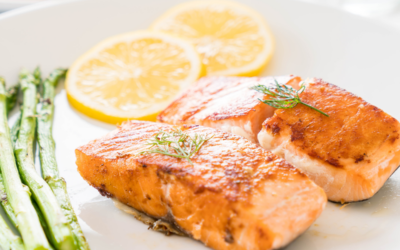Summary of key points
Grape leaves have been consumed for centuries and are commonly used in Mediterranean and Middle Eastern cuisine. Grape leaves offer potential health benefits, but commercially available grape leaves may be preserved in brine, which can increase the sodium content. Therefore, it’s advisable to rinse and soak them before use to reduce sodium levels.
Grape leaves have been part of culinary traditions in various cultures for centuries. While they are primarily known for their use in dishes like stuffed grape leaves (dolma) and vine leaf rolls (yarak sarma), grape leaves also offer numerous health benefits. Exploring these health benefits can provide insights into grape leaves’ nutritional value and potential therapeutic properties.
This article will delve into the nutritional profile of grape leaves and discuss the various health benefits associated with their consumption. By understanding the potential advantages of incorporating grape leaves into our diet, we can make informed choices for our overall well-being.
Are grape leaves edible?
Grape leaves are indeed edible. In many cuisines, particularly Mediterranean and Middle Eastern, grape leaves are commonly used as a wrapping for various dishes. The leaves are typically harvested when young and tender, as they become tougher and less palatable as they mature.
Grape leaves have a mild, slightly tangy flavor and a delicate texture. They are often stuffed with a mixture of rice, herbs, spices, and sometimes meat, creating dishes like dolmas or stuffed grape leaves. Grape leaves can also be used in salads, as a garnish, or in other creative culinary applications.
Nutritional Profile of Grape Leaves
Grape leaves offer a range of nutrients that contribute to their health benefits. Here’s an overview of their nutritional profile:
1. Macronutrients: Grape leaves are low in calories and contain carbohydrates, protein, and little fat. They provide a healthy energy source and can be part of a balanced diet.
2. Vitamins: Grape leaves are rich in several vitamins, including:
- Vitamin A: Important for vision, immune function, and cell growth.
- Vitamin C: Acts as an antioxidant, supports immune function, and aids collagen production.
- Vitamin K: Essential for blood clotting and bone health.
3. Minerals: Grape leaves contain various minerals essential for the body, such as:
- Calcium: Critical for bone health, muscle function, and nerve transmission.
- Iron: Essential for oxygen transport and red blood cell formation.
- Magnesium: Supports nerve function, muscle contraction, and energy production.
Additionally, grape leaves contain other beneficial compounds, such as polyphenols, contributing to their potential health-promoting effects. These components will be further explored in the subsequent sections, discussing grape leaves’ health benefits.
Health benefits of grape leaves
Grape leaves offer several potential health benefits due to their nutrient composition and bioactive compounds. Here are some of the critical health benefits associated with grape leaf consumption:
- Antioxidant properties: Grape leaves are rich in polyphenols, including flavonoids and anthocyanins, which act as antioxidants in the body. Antioxidants protect cells from damage caused by free radicals and oxidative stress. This reduces the risk of chronic diseases such as heart disease, cancer, and neurodegenerative disorders.
- Anti-inflammatory effects: Certain compounds present in grape leaves exhibit anti-inflammatory properties. They may help reduce inflammation markers in the body, potentially benefiting conditions like arthritis, chronic bowel disease, and cardiovascular diseases.
- Digestive health: Grape leaves are a rich source of dietary fiber, which aids digestion and regulates bowel movements. Fiber promotes a healthy gut environment, prevents constipation, and may contribute to weight management.
- Heart health: Regular consumption of grape leaves has been associated with cardiovascular benefits. Grape leaves antioxidants to prevent the oxidation of LDL cholesterol, reducing the risk of plaque formation in the arteries. They may also help maintain healthy blood pressure levels, reducing hypertension risk and promoting heart health.
- Potential cancer-gighting properties: Grape leaves contain phytochemicals with possible anti-cancer effects. These compounds may inhibit the growth of cancer cells, prevent DNA damage, and reduce the risk of certain cancers. However, further research is needed to establish their anti-cancer properties.
Culinary uses and preparations
Grape leaves have a long culinary history in various cultures. Here are some popular culinary services and grape leaf preparations:
- Stuffed grape leaves (Dolma/Yaprak Sarma): One of the most well-known uses of grape leaves is stuffed grape leaves. The leaves are typically blanched or briefly boiled to soften them before being filled with rice, herbs, spices, and sometimes meat. Grape leaves are filled and cooked by steaming, baking, or simmering. Stuffed grape leaves are often served as appetizers or main dishes in Mediterranean, Middle Eastern, and Balkan cuisines.
- Vine leaf rolls: Grape leaves can also be used to wrap and roll other ingredients. They can be filled with various combinations of vegetables, grains, and proteins, such as rice, quinoa, lentils, minced meat, or vegetables and herbs. These rolls can be served as a light meal or an appetizer.
- Grape leaf tea: Grape leaves can be dried and used to make herbal tea. The dried leaves are steeped in hot water, like other herbal teas. Grape leaf tea is known for its mild, earthy flavor and health benefits.
- Flavoring and wrapping: Grape leaves can be used to spice cooking. They can be added to stews, soups, and rice pilaf to infuse a subtle tangy flavor. Additionally, grape leaves can be used as a wrapper for grilling or roasting foods, providing a protective layer and adding a hint of flavor.
When using fresh grape leaves, it’s imperative to blanch them briefly in boiling water or steam them to soften their texture. This will remove any bitterness. If using preserved grape leaves, rinse them thoroughly to remove excess salt or brine before use.
Grape leaves offer versatility in the kitchen and can be incorporated into various recipes to add unique taste and texture. Exploring different culinary uses allows you to appreciate their flavors and benefits.
Precautions and considerations
Grape leaves offer potential health benefits and are generally safe for consumption, but there are some precautions and considerations to remember:
- Allergies and sensitivities: Some individuals may have allergies or sensitivities to grape leaves. If you have known allergies to grapes or other vine plants, exercise caution when consuming grape leaves. Allergic reactions can range from mild symptoms like itching and hives to severe reactions. If you experience any adverse reactions after consuming grape leaves, discontinue their use and seek medical attention if necessary.
- Interaction with medications: Grape leaves contain certain compounds that interact with medications. If you are taking any medications, especially blood thinners or diabetes medications, consult with your healthcare provider before consuming grape leaves. They can guide potential interactions or adjustments needed to your medication regimen.
- Moderation in consumption: While grape leaves can be a nutritious addition to your diet, consuming them in moderation is essential as part of a balanced diet. Excessive consumption may lead to digestive discomfort or nutritional imbalance. Aim for variety in your diet and incorporate grape leaves and a wide range of other fruits, vegetables, whole grains, and lean proteins.
Takeaway
Grape leaves offer delicious culinary traditions and health benefits. Their nutritional profile, rich in vitamins, minerals, and antioxidants, contributes to their therapeutic properties. By incorporating grape leaves into your diet, you may enjoy the following health benefits:
- Protection against oxidative stress and inflammation due to their antioxidant and anti-inflammatory properties.
- Support digestive health through fiber content and healthy digestion promotion.
- Positive effects on heart health by maintaining healthy cholesterol levels and blood pressure.
- Potential anti-cancer properties attributed to phytochemicals.
You can incorporate grape leaves into your meals as part of a diverse and nutritious eating plan and be sure to consult healthcare professionals or registered dietitians for personalized guidance.















